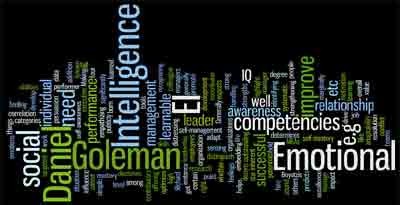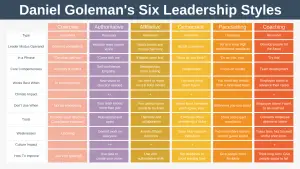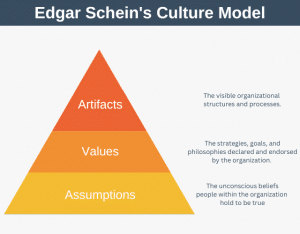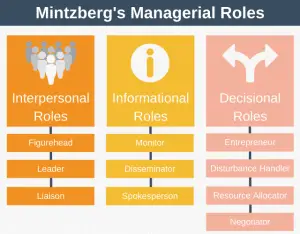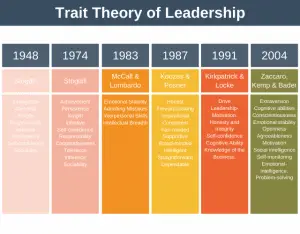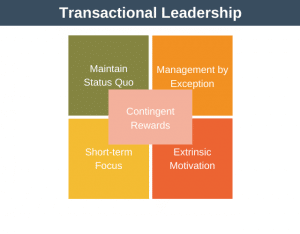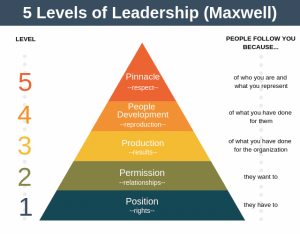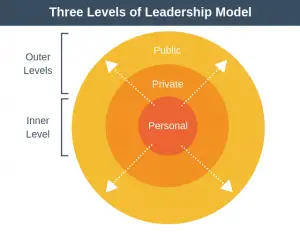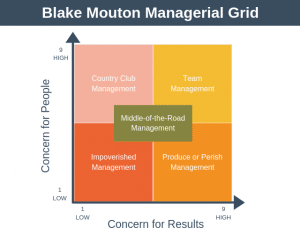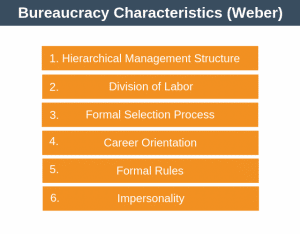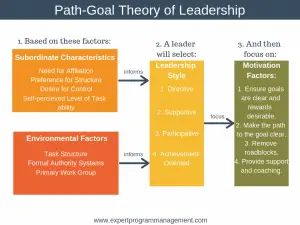Think back to your school days and then project forward to today, and you will probably observe that it wasn’t always the cleverest kids who went on to become the most successful. That’s because success, along with successful leadership, isn’t just about having the highest IQ. Emotional intelligence and leadership are interwoven.
Emotional intelligence argues that IQ alone is too narrow a metric to use to identify a potential leader. In other words, aspirant leaders should work on not just what they know about business in an academic way, but also continuously aim to improve their intelligence and understanding in other areas, such as empathy, communication, behavior, and feelings etc.
Note that emotional intelligence is actually much more scientific than simply trying to improve your knowledge and understanding of touchy feely areas. There is a value called EQ, which stands for Emotional Intelligence Quotient. In the same way that IQ (Intelligence Quotient) is said to measure your intelligence, EQ measures your emotional intelligence. However, there is no standard measure of EQ, so the only way to compare two individuals is to get them to take the same test.
For our purposes we can think of developing our emotional intelligence as working to improve two aspects of our understanding:
- Personal Competence
- Social Competence
1. Personal Competence
Personal competence refers to your understanding of yourself – what factors drive you, what are your values, do you readily make commitments, and are you trustworthy. Personal competence is often broken down into three categories, with further subcategories beneath each category. Each of these subcategories represents an area for potential personal development.
1.1 Self-Awareness
- Emotional Awareness: being able to recognise our own emotions and the impact they have on our behaviors.
- Accurate Self-Assessment: being reflective enough to be aware of our strengths and weaknesses.
- Self-Confidence: our belief in our own abilities and our willingness to take a contary view if we believe it the right thing to do.
1.2 Self-Regulation
- Self-Control: our ability to manage our disruptive emotions and stay positive and in control.
- Trustworthiness: our reliability and how authentic we are.
- Conscientiousness: refers to taking accountability for our own performance, and not blaming others.
- Adaptability: our skill level at handling change, and also our ability to manage different and often conflicting demands on our time.
- Inventiveness: our ability to both seek and create new ideas.
1.3 Self-Motivation
- Achievement Drive: a measure of our desire to deliver and meet results, and our desire to want to do things better.
- Commitment: our commitment to meet the goal of the group. Being prepared to make personal sacrifice to help the group meet its goal.
- Initiative: our get-up-and-go, our ability to hustle to get things done.
- Optimism: our ability to remain positive and continue pursuing our goals despite the obstacles that arise.
2. Social Competence
Social competence refers to our ability to understand others and our interaction with them. Social Competence is often broken down into two categories, again, each with subcategories beneath them.
2.1 Social Awareness
- Empathy: our ability to really get under the skin of another person and understand things from their perspective.
- Service Orientation: refers to our capability to anticipate and then meet customers needs.
- Developing Others: our capacity to understand the strengths and weaknesses of others, and then develop weak areas.
- Leveraging Diversity: how strongly we see diversity as a positive, and even create opportunity through it.
- Political Awareness: understanding power networks and social networks and knowing how to work within these structures.
2.2 Social Skills
- Influence: our ability to persuade and build consensus.
- Communication: refers to communicating clearly and concisely with others through the most appropriate channel.
- Leadership: our ability to get others excited or inspired by our vision.
- Change Catalyst: how strongly we recognise that change is needed, and then our capacity to initiate and manage that change.
- Conflict Management: our ability to manage and resolve disagreements.
- Building Bonds: our capacity to build and then maintain mutually beneficial connections to others (our personal and professional network combined)
- Collaboration and Cooperation: our ability to work with others as part of a team to achieve a shared goal.
- Team Capabilities: our competence in building a team spirit and to bringing team members together.
Emotopnal Intelligence and Leadership Summary
There are five key subcategories to emotional intelligence: self-awareness, self-regulation, self-motivation, social-awareness, and social-skills. Competence in all five areas is needed in addition to academic business knowledge in order to be an effective and well-rounded leader. I like to think of academic business knowledge as been the hard skills necessary to be a leader, and emotional intelligence as providing the behaviours needed to be a leader.
* Image by Mediocre2010
